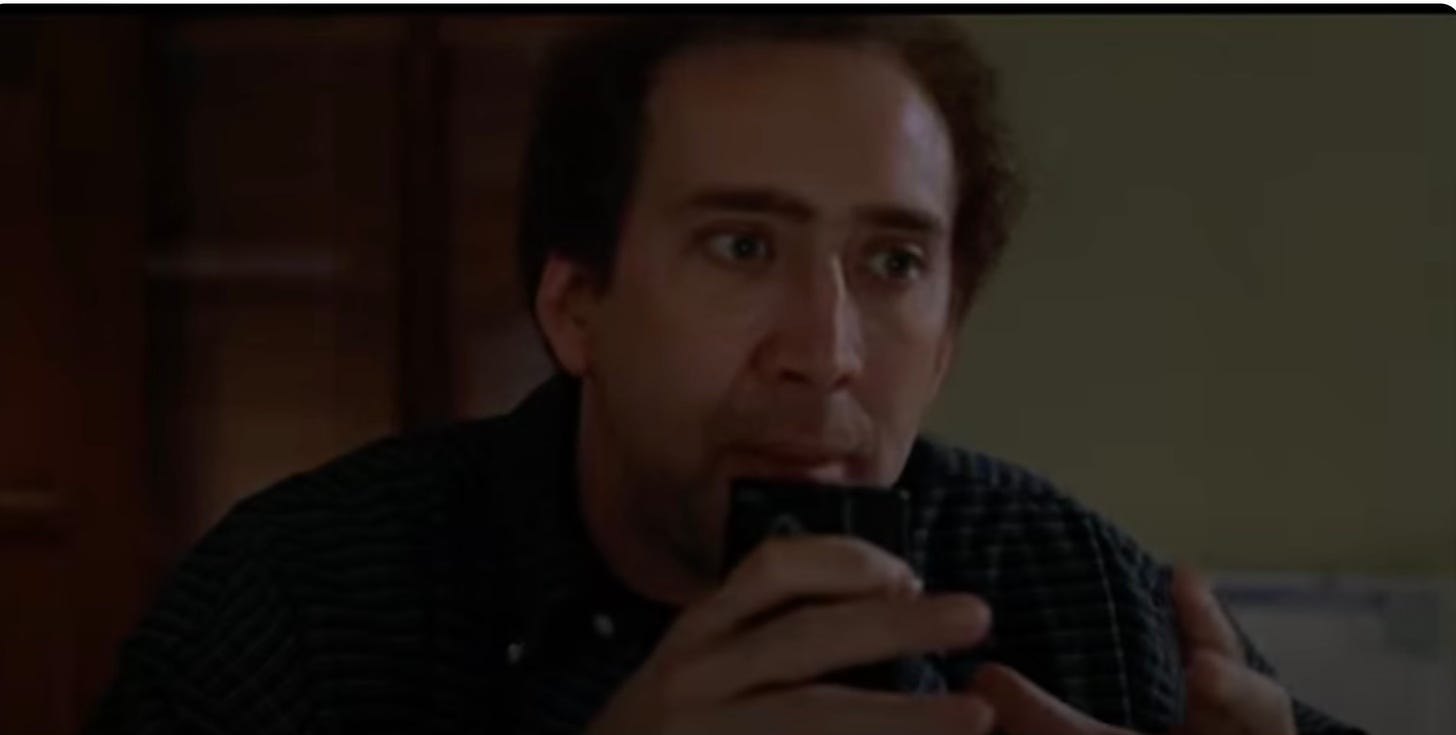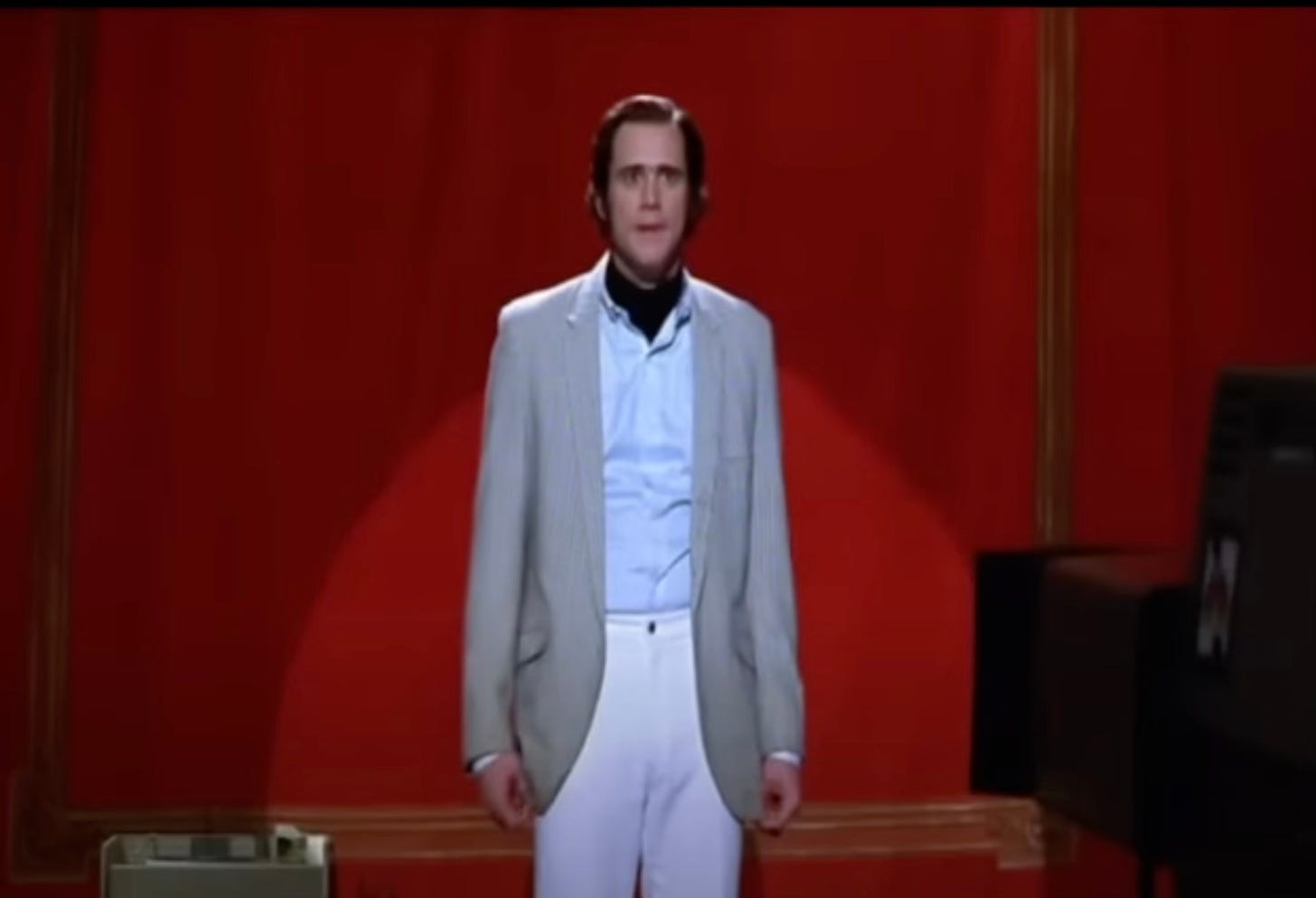Dear Friends,
I’m sharing a literary criticism-type piece.
Best,
Sam
AGAINST STORIES
There’s a passage in E.M. Forster’s Aspects of the Novel in which he ties himself up into knots on the subject of ‘stories.’ Forster writes:
What does a novel do? If you ask a certain type of man, whom I visualize on a golf course, he will be aggressive and brisk. He will reply, ‘Why tell a story of course, and I’ve no use for it if it didn’t. I like a story to be a story, mind, and my wife’s the same.’ And another man says in a sort of drooping, regretful voice, ‘Yes — oh dear yes — a novel tells a story.’ I detest and fear the first speaker. And the second speaker is myself. I wish it were not so, that the novel could be something different — melody or perception of the truth, not this low atavistic form.
I remember being very perplexed by this the first time I read it. Out of all the problems in the world, this guy had an issue with …. stories? But, now that I’m older and more dyspeptic, I can see what he’s talking about and share much of the same aversion and belief — the idea that, to harness its full potential, literature, actually, has to confidently free itself from the confines of stories.
I’ve come to think of it as a bifurcation in philosophies. Stories align with very deep structures in the human psyche and have fairly narrow, almost-quanifiable rules. They have a beginning, middle, and end, for instance. They have moments of crisis and end in resolution. Maybe most importantly, they exist in a very clear, cordoned-off timeframe — once a story ends, it ends, and it follows from there that a story has its own energy system, which can be optimized, so that everything in the story contributes to everything else like in some perfect, crisply-flowing machine.
It is hard to read, for instance, Joseph Campbell and to not be convinced of the primacy of stories both in shaping the entirety of our worldview and in forming an underlying societal architecture. All stories worth their salt, Campbell contends, are pieces of a single ‘monomyth,’ which can be found in the anthropology of every society you can think of, and which posits the hero leaving home, having a series of initiatory adventures, and then returning to slay his father, marry his mother, bring peace to the kingdom, and, promptly and crucially, to then ‘crucify’ himself.
It is a humdinger of a story, actually, and smart-guy literary analysis is often about teasing that out and, ideally, incorporating it into one’s own screenplay. Star Wars, famously, was written with a copy of The Hero With A Thousand Faces splayed open, and there’s a reason that Star Wars taps into the collective psyche of the 20th and 21st century world more, really, than anything else. The movie-making of the ‘90s, in particular, was, as Charlie Kaufman put it, all about ‘reverse engineering’ films from these underlying archetypes. And the entirety of Freudianism and of modern psychology, which really is the air that we breathe, is of a piece with Campbell’s theories — that there is a path to a healthy psychological development (which has to do with the primal scene, separation from one’s parents, acceptance of one’s mortality, etc) and which is modeled for us in myths and stories.
That school of thought is worthy of respect, of course, but I find it somehow lacking. Simply put, there is a great deal in life that doesn’t line up with the world as it is presented to us in stories. There is dead time, there is feeling lost, there is what I used to think of as the walking-aroundness of life, there are the cycles of sun-up, sun-down, of seasonal renewal, which have only a glancing resemblance to the beginning-middle-and-end of story structures. I felt this strongly in my own life when, very naively, as a teenager, I imagined that the books I read would give me some insight into how the world worked and then discovered in my 20s that that just didn’t really seem to be the case. There seemed to be whole swathes of existence — what it’s like to have a job, how money works, the meandering course of most relationships and friendships — that just somehow didn’t really register in even the very highly-regarded, ostensibly successful stories that I was coming across.
I started finding hints for this different sensibility above all in the stray comments of various jaded writers. Forster complained about the tyranny of stories and clearly seemed to prefer some very different aesthetic. Virginia Woolf wrote of Middlemarch that it was one of the very few books for “grown-up people.” Don DeLillo, in an interview, described himself in his formative writing years as drifting away from anything like the conventional literary scene, as being “a man in a room and feeling that there was something important about a man in a room.” Michel Houellebecq, in his Paris Review interview (one of my favorite pieces of literary criticism ever), said the following of his literary start:
There was only one value — a little reality, man! Show us the real world, the things that are happening now, anchored in the real life of people.
For Houellebecq, that meant a very simple — and surprisingly untrammeled — path to great writing: take the lived-in truths that most people gloss over and write them down. He wanted to write about how a person’s ugliness — not any character failing or anything like that — would entirely exclude them from the dating market, and that became the genesis of Tisserand in Whatever and Bruno in Atomized. He wanted to write about how “entering the work force is like entering the grave….it’s obvious once you say it, but I wanted to say it,” and that became the driving plot line in Whatever — which Houellebecq describes as his concreted effort to make people “care about the lives of computer programmers.”
More than anything else I can think of, the movie Adaptation pits these two sensibilities against each other. On the one hand, there is Charlie, who is committed to a vision of literature as a vessel for ‘reality’ — which means, unfortunately, that literature has to somehow align with the truth of his own life, which is that he very much is ‘a man in a room,’ suffering from writer’s block, masturbating too much, and finding himself consumed with envy for those who have taken the shortcuts to success. And then there is his twin brother Donald, who has no such compunctions, regards movies as entertainment i.e. stories, and always has everything work out for him. The plotline of Adaptation — as befits a Hollywood movie — is for Charlie to come out of his shell, to take a course on Robert McKee’s storytelling techniques, to allow Donald to take over his moribund screenplay, and have adventures, heroes and villains, alligators, a very unwilling deus ex machina, and to give in to all the armature of storytelling.
But Kaufman’s heart is with Forster, Woolf, DeLillo, Houellebecq, and in his case, specifically, with Beckett — and with Beckett’s sense of the absurd, which represents a decisive rupture from the story structure altogether. What that means in practice is an extreme attentiveness to life itself — what’s actually happening in your life, what’s embarrassing, what’s inglorious, what are the sort of things that fall outside of any of the usual narratives of how you would explicate your life and then assuming that that’s where the real truth is. Comedians use these techniques all the time. The premise of stand-up comedy (say the Lous C.K., Doug Stanhope style) is to name the shocking things that everybody recognizes but that nobody has the nerve to say in public themselves. The premise of somebody like Larry David is to focus in on the minutiae of daily life, all the little awkwardness and social faux pas that, taken together, comprise the bulk of how we actually live. But the non-story sensibility does not have to be limited to comedy. It’s the revolution that Chekhov initiated in theater and that continues through naturalism — the most important technique being to slow the tempo of art down to the pace of everyday life (Chekhov’s plays can begin with a card game, with an awkward silence), and, instead of what Annie Baker calls “the breakneck pace” of most plays, to just breathe into the reality that we all have, of being bored, of being anxious, of being trapped in a life that more often than not seems to have no particular in-built story structure to it.
The basic reason that the story sensibility prevails over a true naturalism is — not even so much the need for audiences to be satiated as the underlying fear that creators have. Think of the moment of terror in Man on the Moon in which Andy Kaufman, appearing on Saturday Night Live for the first time, says nothing at all for long moments, generating a panic in the control room before it turns out that he’s actually hit on something like the heart of comedy. Think of the consternation that greeted the first productions of Waiting for Godot, as well as The Sea Gull — the audiences shouting at the stage — before everybody somehow together realized that they were dealing with masterpieces. When I read most work that’s out now — let alone most movies — what I see, basically, is fear. A fear of boring an audience. A fear of alienating an audience. And so there’s an obsession with a clever style. There’s an obsession above all with economy — with making sure that there is nothing extraneous in a work of art, nothing that detracts from the optimized story structure. But if I think about the award-winning books of the last decade or so — all the ‘world-building’ exercises, all the identity tales, all the playing-around-with-genre, all the stylistic tours de force, what seems to be missing is much sense of the world-as-it’s-currently-lived-in, the pan-societal addiction to technology, the increasing sense of alienation and estrangement, as well as, of course, the eternal verities of disliking-one’s-job, of problems-with-one’s-relationship, of the-difficulties-of-bringing-up-one’s-children. If people a hundred years in the future were to read the award winners of the last decade or so, I’m not sure that they would learn very much about our actual lives.
There’s not much point in being on one side of the fence or the other. Of course I like stories — it’s like being against motherhood or something to oppose them. But there is a point in your life when you sort of get tired of stories. “The problem with you Americans is that you watch too many movies,” says the villain in Fargo’s third season and I think he’s basically right. Get into the story sensibility and you expect everything to artfully resolve itself (which of course it never does) and you look for the beginning, middle, and end of things (which don’t actually really exist). You also find yourself getting bored and restless when narratives — or life itself — don’t cohere in the way you’ve become accustomed to. Choose the non-story sensibility, and life becomes almost immediately richer and more complicated — anything can be interesting, anything can be rewarding, the only limits on expression and on wonder become your own anxiety, your own lack of imagination.






Sam, I have a two-word reply: Alice Munro.
Life begins with becoming "older and more dyspeptic"!